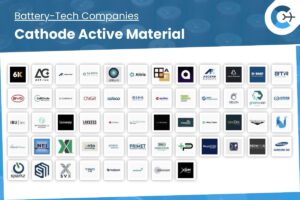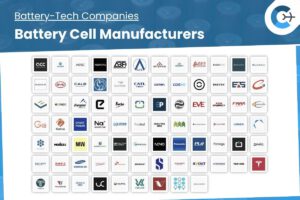SK On has unveiled significant advancements in solid-state battery technology, focusing on enhancing cycle stability and extending battery life. In collaboration with Hanyang University, the company has developed a method to increase the longevity of batteries featuring lithium metal anodes. SK On is advancing two types of solid-state batteries: a variant with polymer-oxide composites and a sulphide-based variant. Commercial prototypes for these variants are anticipated by 2028 and 2030, respectively.
The collaborative study with Hanyang University demonstrates a technique that improves the cycle life of batteries with lithium metal anodes. Additionally, research conducted with Yonsei University has revealed a link between the curing time of gel polymer electrolytes (GPEs) and the overall battery lifespan.
“These achievements are the result of SK On’s continuous research and development efforts and technological expertise made possible through collaboration with academia,” says Kisoo Park, Head of SK On’s Research and Development Department. “They will serve as an important foundation for overcoming the technological challenges of solid-state batteries.”
Recent findings on sulphide-based lithium metal batteries were published in ACS Energy Letters. To prolong the service life of these batteries, SK On researchers applied a protective layer to the lithium metal anode’s surface and have filed a patent for this method. Lithium metal is favored for its high capacity, approximately ten times that of graphite, but its reactivity with air can impede lithium ion movement and promote dendrite formation, limiting the battery’s charge-discharge cycles to around 100. SK On’s approach involves immersing the lithium metal anode in a specialized solution to create a protective layer that enhances ionic conductivity and mechanical strength. This modification allows the battery to achieve over 300 charge and discharge cycles at room temperature, effectively tripling its service life.
In another project, the partnership with Yonsei University explored cathode degradation mechanisms in polymer solid-state batteries. Published in Angewandte Chemie, the study found that extending the thermal curing time of GPEs to 60 minutes significantly reduces discharge capacity loss compared to a 20-minute curing period. The research utilized density functional theory to model electron arrangements and energy states, identifying causes of cathode performance decline and side reactions during initial charging. These insights are expected to improve the longevity of polymer-oxide composite-based batteries.
SK On continues to make strides in solid-state battery development, recently announcing the creation of a solid polymer electrolyte operable at room temperature and a new production method leveraging light energy technology. The construction of a solid-state battery pilot plant at SK On’s research center in Daejeon is underway, with completion expected in the latter half of 2025.
Source: Electrive
















